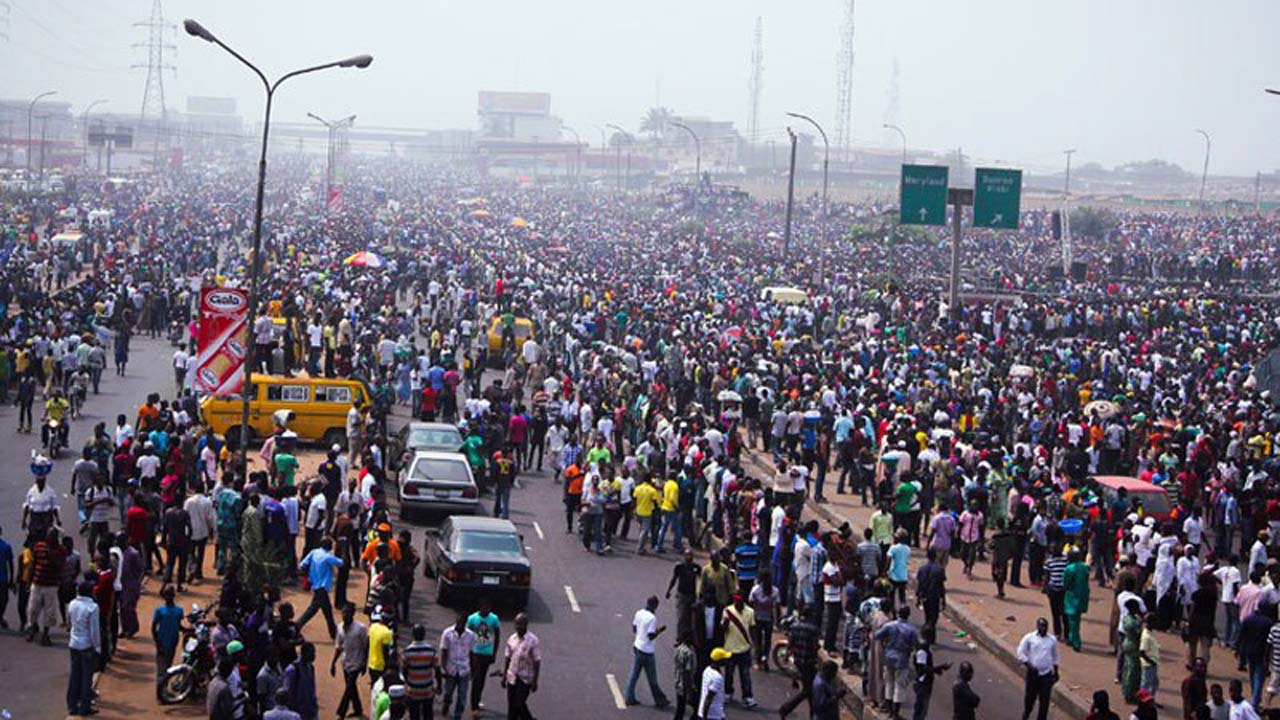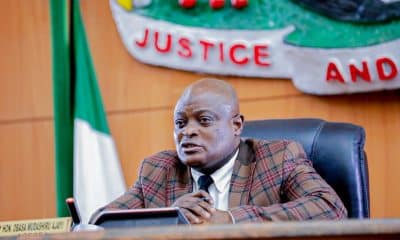Nigeria News
Nigeria Decides: Important Numbers To Know About The Elections In Nigeria

There are thousands of fascinating facts and figures about Nigeria as a country, but here are the ones you need to know before Saturday’s poll, where incumbent president Muhammadu Buhari will face opponent Atiku Abubakar.
190 million
The winner of the presidential election will be at the head of a country of 190 million inhabitants. Nevertheless, this is only an estimate (from the National Bureau of Statistics) since the last official census dates from 2006.
One thing is certain, however, Nigeria is the most populous country in Africa, and its population is one of the fastest. According to UN forecasts, its population is expected to reach 410 million by 2050 and it will become the 3rd most populous country in the world behind China and India.
The new president will face the huge challenge of youth employment, knowing that 87 million Nigerians live below the threshold of extreme poverty. This is the world record, ahead of India which nevertheless records a population of 1.3 billion.
According to the World Poverty Clock organization, Nigeria is falling into extreme poverty day by day and this category is expected to represent 45.5% of the population in 2030 (against 44.1% currently), or 120 million people.
76 and 72
These are the respective ages of the two main candidates for the presidency. Muhammadu Buhari, 76, outgoing president who had previously ruled the country in 1983 during military dictatorships, was away nearly 6 months during his first term. Hospitalized in London, he was accused of not being physically and mentally able to lead the country.
The opposition also claims that he is much older than the 76 years he claims to have. As for him, the day of his 75 years, in 2017, he had declared: “I thought that I was 74 years old, but I am told that I have 75 today”.
For its part, “Atiku”, as it is called in Nigeria, wanted to conquer the voters of 18-30 years, who represent more than the majority of the enrollees.
Despite being 72 years old, he remains the youngest of the two candidates and thus wins the right to have published the “first campaign program entirely written in emojis”.
Be careful, do not say that the septuagenarians are “old”. The US channel CNN has paid the price, causing a wave of negative reactions on Twitter: “And Donald Trump, he how old?” (72 years).
1
This is the number of times the opposition has won a vote against the party in place. It was Muhammadu Buhari, in 2015, vying for reelection.
The violence-free 2015 elections were the first to be considered “free and transparent” since the democratic turn of 1999, after decades of military dictatorships and coups d’etat.
25% of two-thirds of 37
Electoral puzzle: the winner must obtain, in addition to the majority of the votes cast, at least 25% of the votes in two-thirds of the 36 states of the federation plus the territory of the federal capital, Abuja. Otherwise, a second round will take place the following week.
The most complex calculation has the merit of guaranteeing a certain homogeneity of support for the candidates, in each region, in a country divided almost equally between Christians and Muslims and between a multitude of ethnic groups.
1.9%
Nigeria’s economy grew by 1.9% in 2018 according to the National Bureau of Statistics and is expected to maintain its cruising speed, with an increase of 2.2% in 2019 according to World Bank estimates.
We are a long way from the double-digit growth of the early 2000s when the price of a barrel of oil exceeded $ 100, but the giant of West Africa remains the largest economy of the continent before South Africa (according to the International Monetary Fund).
Again, this varies from source to source and depends on the calculation methods and the chosen exchange rates of the naira against the dollar (there are several in Nigeria).
16.3%
It is also the country where the growth in the number of millionaires (in dollars) is the highest in the world. According to research firm Wealth-X, their number is expected to increase by 16.3% each year until 2023.
This latter figure is directly related to the number of barrels of oil produced each day in the country. With about 1.8 million barrels/day, Nigeria is the largest producer on the African continent, ahead of Angola.
But many question this figure, which could be much higher, because of barrels produced and exported in parallel circuits.










